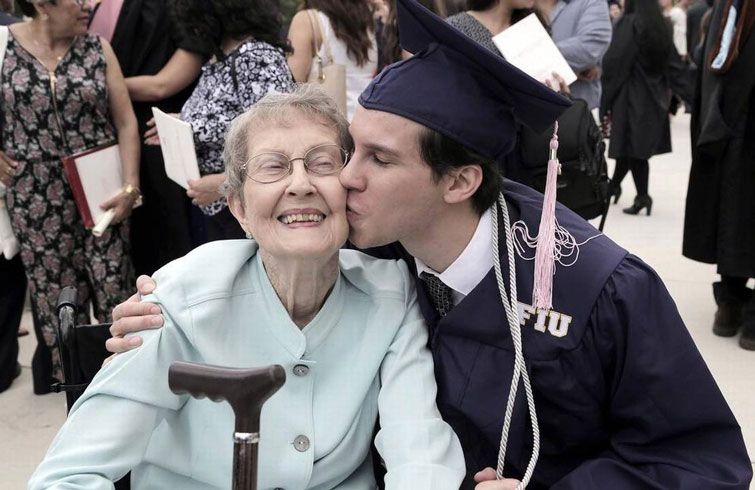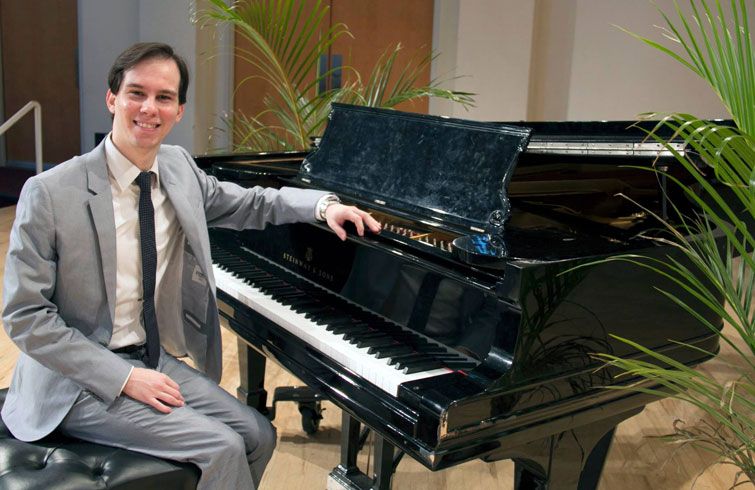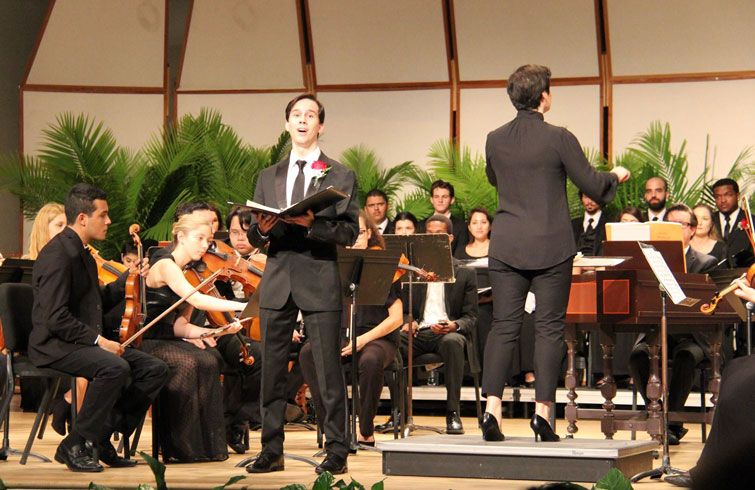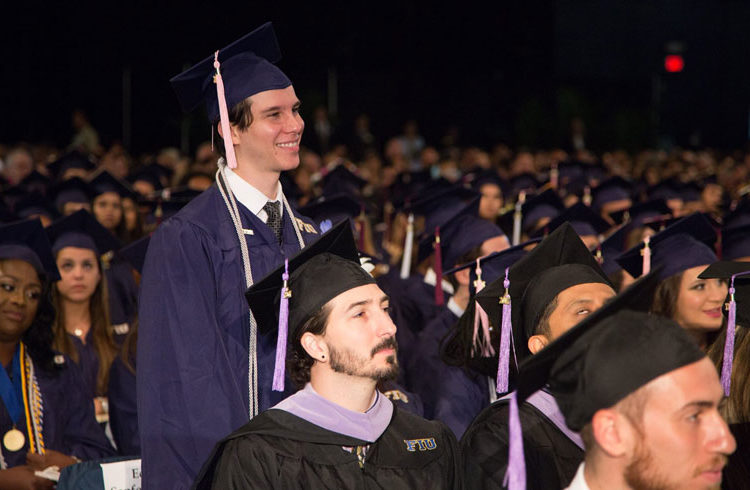Edgar Sanfeliz-Botta’s story seems like a fairy tale. Or a plot born of the trained imagination of Hollywood scriptwriters. One day, while he was singing “Once Upon a Dream,” the well-known theme of the film Sleeping Beauty by Disney, the person who would change his life heard him. Edgar was working in a Miami McDonald’s and Roberta David had gone there to buy a Cesar salad.
Roberta, professional director of choirs, immediately knew of the diamond she had found behind the window of that place. “Was that you?” she asked him in a hurry because of the cars that were following hers on the line. And Edgar, between confused and surprised, told her that it was him.
The elderly lady confirmed that the young man with a red apron was a singer, a countertenor to be more specific, and she decided to do whatever was possible to channel him.
What happened later has been trending for the Cuban community of Miami and for the press, to the point of making Edgar a celebrity, taking him by surprise. But he does not give importance to the will-o’-the-wisp of fame and prefers to thank the luck of having found Roberta in his way.
“She has been someone very special for me, she’s my American grandmother,” he says with gratitude. “After meeting her my life changed for good. She took me under her wings and gave me the push I needed so much. Although she was already retired as a musician, she knew about the best study programs in Miami and dedicated herself to introducing me in the city’s cultural world. She also helped me with English and practically became one more member of my family,” Edgar said in an interview with OnCuba.
Roberta returned to McDonald’s once and again, left him messages and cards until she was able to get Edgar to call her on Christmas 2013. Their ties strengthened since then.
Through his benefactor, the young singer applied for the music program of the Florida International University (FIU) which would give him a grant to start his studies in August 2014. His graduation three courses later would turn him into news.

“That program provided me with the best musical education I could have imagined,” he affirms. “The world of possibilities that the FIU opened for me is invaluable, from learning to the resources, scores, books, concerts. I was able to perfect my technique as a singer and organist, gain in knowledge to be able to open my way in the future. Moreover, it gave me a U.S, title, something very important to work in this country, because when I left Cuba I couldn’t take anything with me. I had to start from zero.”
Edgar left from his native Santiago de Cuba in December 2012. There he had had an important musical formation and had accumulated an experience he appreciates.
“I owe a lot to my stage in Cuba because I had very good teachers. Studying in Santiago gave me the bases, the tools, to later be able to better and perfect myself as an artist here in the United States.”
Edgar studied choir direction in the Esteban Salas Conservatory of Santiago de Cuba and sang with the city’s principal choir groups. After graduating in 2009 he formed part of the prestigious Orfeón Santiago, with which he participated in different festivals.
In addition, he learned how to play the organ on his own and played the instrument with the Symphony Orchestra of Oriente directed by maestros like Enrique Pérez Mesa, Guido López-Gavilán and Daria Abreu. He was also the organist of the Santa Lucía Church, which he calls his “beloved parish church” and in which he always remembers priest and musician Jorge Catasús. He even performed for Pope Benedict XVI during the Supreme Pontiff’s visit to Cuba in 2012, and also for Cuban President Raúl Castro.
“When he went to Santiago Raúl would send for me so I would play the organ for him. Since the first time he heard me he was delighted. Frank País also played the organ, that’s where the connection was,” Edgar supposes.
“I left Cuba to have a better musical career, but when I got to Miami everything changed because I didn’t know anyone and didn’t know where to go. Since I came on my own it was very difficult for me in the beginning. Discovering a new culture with new customs, being in a completely unknown place and with a language I didn’t understand, made my stay in the country very difficult,” he recalls.

But he was not daunted. He tried to improve his English and started looking for work until he got into the McDonald’s where he would be discovered months later. Although many people told him to forget about music, he insisted in singing at least behind the counter. Thanks to that Roberta David found him the day she went to buy a Cesar salad.
While he was studying in FIU, Sanfeliz-Botta worked as a singing teacher in a music academy and as an organist and singer in different churches. He also performed in concerts and recitals, and, with the money he saved, he was able to take his family to the United States.
Mark Rosenberg, FIU president, said that with Edgar his university had won “the music lottery.” His singing professor, Kathleen Wilson, dares to predict “that he will have an international career.”
With such predictions and barely 27 years old, Sanfeliz-Botta looks at the future with optimism. But success, he knows, will not only depend on his talent but also on his effort to continue developing his technique.
“My plans are to continue singing and playing the organ, as I have done these years,” he affirms. “I know that now I’m going to have many more opportunities and I plan to continue bettering myself, doing a master’s and a doctorate. I want to sing in concerts and operas, but also teach and finish my studies.”
Edgar has not returned to Cuba ever since he left and doesn’t know if he would sing again in his country. “Perhaps in Santiago,” he speculates. “I miss my friends, my parish church, my people, my city, but there are also many things that distance me. When I left I had to give up everything, they made me feel as if I were doing something wrong, and I ask myself: what’s wrong with traveling, with seeking new horizons? Returning to my country is something a leave to fate.”











